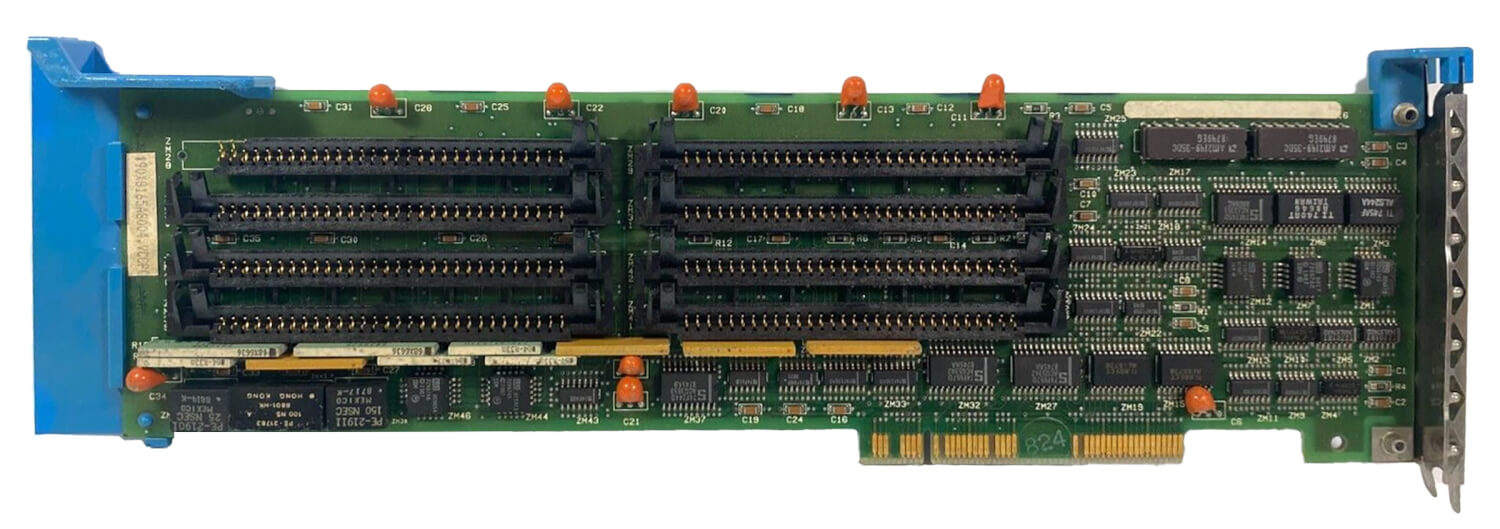MCA
Stands for "Micro Channel Architecture."
MCA was a type of expansion bus developed by IBM in 1987 for its PS/2 line of personal computers. It supported expansion cards, such as video cards, sound card, and network interface cards. MCA memory expansion cards could house memory modules, allowing users to add RAM without replacing the motherboard.
There were two different versions of the MCA expansion bus:
- 16-bit, with 116 pins
- 32-bit, with 172 pins
IBM introduced MCA as a successor to the older AT (Advanced Technology) and ISA (Industry Standard Architecture) buses. It offered faster data transfer rates and a more streamlined design. However, MCA remained a proprietary technology, which limited its adoption. IBM's decision to keep the MCA architecture proprietary meant it was not compatible with the cards used by other manufacturers. Consequently, the industry gravitated towards more universally compatible standards like PCI (Peripheral Component Interconnect) and AGP(Accelerated Graphics Port), which became prevalent in the 1990s and beyond.
While MCA represented a significant technological step forward, its limited adoption showed how proprietary standards can struggle in a competitive marketplace. Remember Sony Memory Stick?

 Test Your Knowledge
Test Your Knowledge